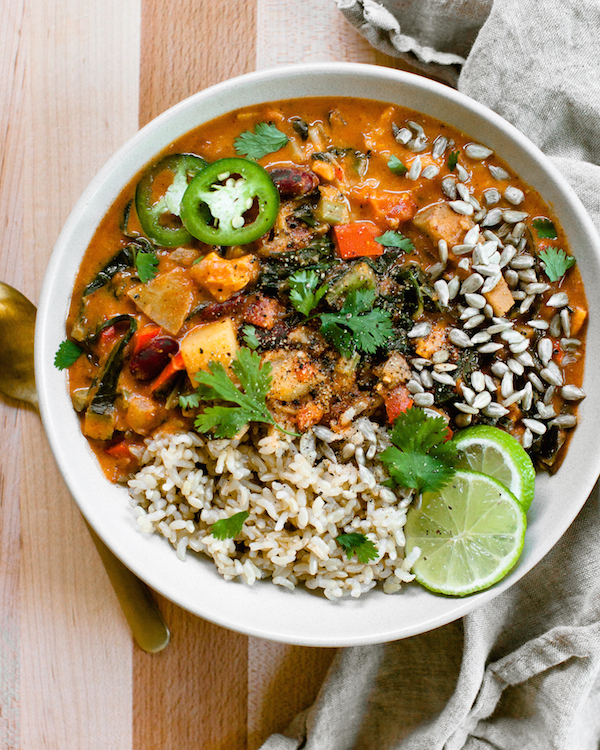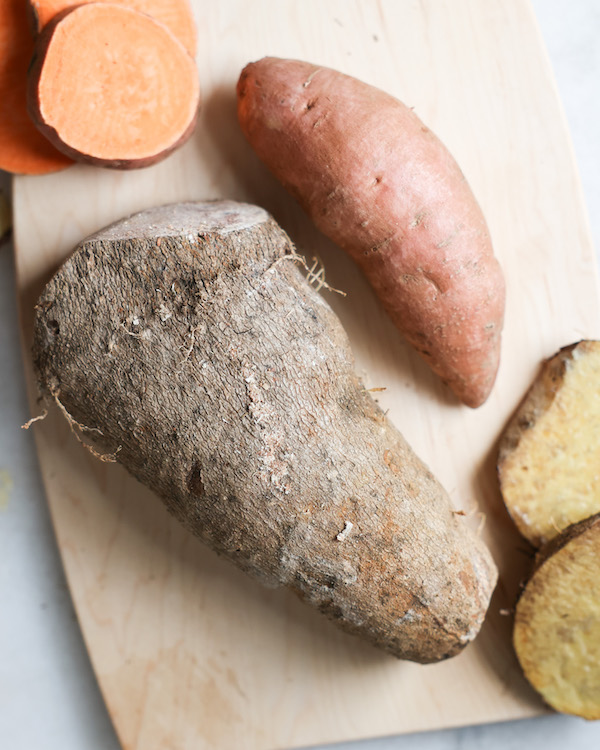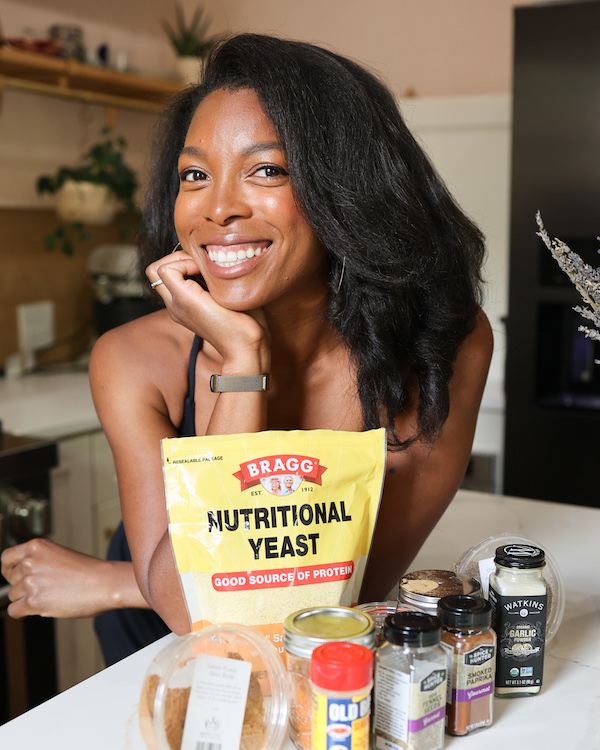This post contains affiliate links. Please see our disclosure policy.
Disclaimer: These tips to reduce bloating aren’t meant to stand in for professional medical advice. If you are experiencing chronic bloating, or painful bloating, or have any serious digestive issues, make sure you speak to your doctor. The tips in this post are pillars of an overall healthy lifestyle, so if you have a medical condition causing bloat they should still be very helpful.
I know bloat, better than I’d like to. Since I was a teenager bloating has been a regular part of my life. It’s caused me discomfort, pain, embarrassment, and frustration. I’ve spent money on expensive elixirs, taken laxatives, eaten more than my share of Activia yogurt, and have even done hydrocolonics, all on my quest for a flatter belly and efficient digestive system. But none of those things worked for me because I wasn’t addressing the root of the bloating issue: poor diet and lifestyle, which led to poor digestion and elimination.
Since I became vegan in 2011 my digestion and elimination has improved immensely. I no longer have digestive issues like daily constipation and indigestion, and I don’t get bloated as often. I do think it’s important to point out that even with a perfect diet and lifestyle, you may still get gassy and bloated. I’ve noticed that my bloating has a lot to do with my menstrual cycle. At certain times of the month I’ll be gassy and bloated, usually right before my period begins. Some bloating during that time is totally normal, though if you have excess painful bloating, heavy periods, and extremely painful periods you should speak to your doctor.
Bloating is also normal when you’ve eaten too much food, a lot of unhealthy foods, something you’re sensitive to, or even when you’re overly stressed out. Totally normal!
To truly take charge of bloat and reduce it as much as possible, follow these 5 simple and practical tips!
- Foods for bloat: Start by eating a whole food plant based diet that is high in fiber. Fiber is essential for becoming and staying regular (meaning healthy elimination). Fiber is also important for maintaining a good environment for your healthy gut bacteria to flourish. Bacteria in your gut can make or break your digestion and bloating. There’s no need to take a probiotic if you’re eating a whole food plant based diet, but if you’re new to this way of eating, then you may want to take a probiotic to help your gut out a bit. Everyday you should eat a variety of cooked and raw vegetables, fruit, whole grains, beans, and healthy fats like nuts and seeds. Try one of my free meal plans to get started!
- Dairy and bloat: I don’t mention this in the video, but stop eating dairy! It really can help reduce bloating. I found that eliminating dairy from my diet was huge! Within a week or so I was no longer constipated and my daily indigestion was gone. With that I got rid of my daily bloat too! Replace dairy products with vegan alternatives. You can find great plant-based milks, yogurt, and cheese.
- Food journal. The only way you’ll know if something you’re eating is causing bloat is to keep track of what you eat. A food journal will help you notice patterns and remove any problem foods. Write down everything you eat and drink, and note how you feel afterwards. Do this for 7 days then look back to see if there’s a culprit for the bloat.
- Food combining does matter. Fruit digests much more quickly than cooked food, so eat it before a cooked meal then wait at least 20 minutes before eating again. If you eat fruit after a harder to digest food, then it can ferment in the stomach and cause bloat. This is a simple fix that works for me, and was especially essential when I was pregnant. I eat the bulk of my fruit early in the day, or have it as a snack only on an empty stomach. I don’t think other food combining matters that much (for example, not eating nuts with avocado), but after you keep your food journal you may find that certain combinations of foods trigger your bloating more than others.
- Reduce bloating with spices. Spices have been used for ages to improve digestion after a meal. The primary spices that are recommended, especially in ayurveda, are cumin seeds, coriander seeds, fennel seeds, and ginger. Cook with these spices to aid in digestion and give your food more flavor. You can also use these spices to make tea. Peppermint and chamomile are also great for getting rid of a bloated belly. Try these delicious recipes that use anti-bloating spices: Tempeh Tikka Masala, Nut-Free West African Peanut Stew, Coconut Black Bean Stew, Sweet Potato Hummus
- Exercise everyday. Exercise is the most overlooked way to improve your digestion and reduce bloating. It’s a necessary part of a healthy lifestyle. Make sure to do some sort of exercise for at least 30 minutes a day. This can be walking, jogging, HIIT, yoga, swimming, dance, or anything else you enjoy doing. When it comes to bloating you should also place special attention on doing ab exercises that strengthen and flatten your belly. Even if you aren’t gassy, you may still look bloated if your core muscles are loose or you have a lot of fat around your stomach. I love doing YouTube exercise videos to get my core work in at home.
Let me know how these tips work for you. Good luck getting rid of that bloat!











